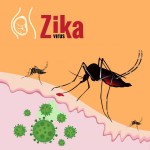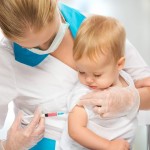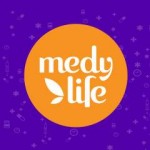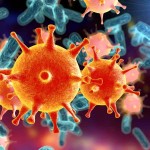Autism
Autism spectrum disorder (ASD) is a range of complex neurodevelopment disorders, characterized by social impairments, communication difficulties, and restricted, repetitive, and stereotyped pattern of behavior. It is a brain disorder that typically affects a person’s ability to communicate with others. ASD form of disease generally begins in childhood and last through adulthood.
Types of ASDs are:
• Autistic Disorder (also called “classic” autism): This is what most general form of autism. People with autistic disorder typically have significant language interruption, social and communication challenges, and unusual behaviors and interests. Many people with this disorder may also have intellectual disability.
• Asperger Syndrome: People with Asperger syndrome, have mild symptoms of autistic disorder. They might have social challenges and unusual behaviors and interests. However, they typically do not have problems with language or intellectual disability.
• Pervasive Developmental Disorder(PDD): It is called as “atypical autism”. People who meet some of the criteria for autistic disorder or Asperger syndrome, but not all, may be diagnosed with PDD-NOS. People with PDD usually have fewer and milder symptoms than those with autistic disorder. The symptoms might cause only social and communication challenges.
Symptoms
ASDs generally begin at or before the age of 3 and last throughout a person's life, even though symptoms may improve over time. Most of the children with an ASD may exhibit hints of future problems within the first few months of life. While others, show symptoms until 24 months or later. Some children with an ASD seem to develop normally until around 18 to 24 months of age and then they stop gaining new skills, or they lose the skills they once had.
A child with an ASD might:
• Does not react to his/her name by 12 months
• Does not play by 18 months
• They generally avoid eye contact and stay alone
• These children also have difficulty in understanding other people's feelings or talking about their own feelings
• These children may show delayed speech and language skills
• Repeat words or phrases over and over (echolalia)
• Give unrelated answers to questions
• Does not like even minor changes
• Have obsessive interests
• Some time they flap their hands, rock their body, or spin in circles
• Have unusual reactions to the way things sound, smell, taste, look, or feel
Causes
The exact reason for the causes of ASD is not known, but it’s likely to be associated to genetics and environment factors. Number of genes have been identified that are associated with this disorder.
Studies of patients with ASD have also found irregularities in several regions of the brain.
Other studies suggest that people with ASD have abnormal levels of serotonin or other neurotransmitters in the brain.
All these abnormalities suggest that ASD could result from the disturbance of normal brain development early in fetal development caused by defects in genes that control brain growth and that regulate how brain cells communicate with each other, possibly due to the influence of environmental factors on gene function.
Diagnosis
• Diagnosis of ASDs can be difficult as there is no medical test, like a blood test, to diagnose the disorders. Physician may look at the child’s behavior and development to make a diagnosis.
• However, the children might receive an audiologic evaluation and a screening test for autism such as Checklist for autism in toddlers.
Treatments
There is no cure for the disease. However, it can be managed with the help of medications and specialist education.
Early intervention services can help in child's improvement. These services include that help child talk, walk and interact with others.
Therefore, it is important to talk to child's doctor as soon as possible.
References:
CDC
NHS
National Institute of Mental Health









